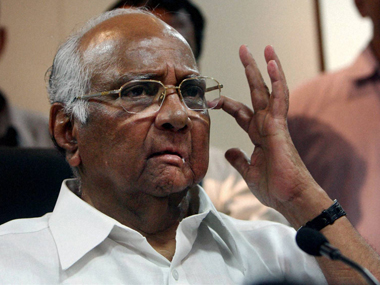It is quite possible Mumbai’s civic body will demolish the 140 illegal apartments on 35 floors of seven buildings in Worli on Monday because the Supreme Court has ordered it. It is quite likely that nothing, including humane considerations, may work to save the residents because no official or government likes to draw the ire of the apex court. If a few buildings in Thane have been demolished, it was just to assuage the governing classes’ conscience that they were doing something after all the sins of the past which nurtured such structures. They have shortlisted a few dangerous buildings but went at it only if vacant, as in Srirang Society. Expectedly, politicians turned up and opposed pulling down dilapidated buildings that were occupied by residents. It is also quite unlikely that the state would allow the endemically illegal buildings to be targeted by the civic bodies of the various cities because a “raze ‘em down” public policy would have enormous negative implications. The implications are graver for the politicians, and the citizens in such buildings – illegal, dangerous or both – are only collateral beneficiaries. Little wonder that Nationalist Congress Party chief, Sharad Pawar, the savviest politician in Maharashtra has written to the Maharashtra Government to adopt a “no evictions” and “no demolitions” policy in all buildings that fall in the two categories. The argument he used with chief minister, Prithviraj Chavan, was that demolitions would render countless people homeless. [caption id=“attachment_734219” align=“alignleft” width=“380”]  Pawar has sought that the demolition of illegal buildings in the state be stopped. PTI[/caption] He has also, and rightly, contended that real culprits – politicians, especially those holding offices ranging from corporators, legislators or members of parliament, and officials involved in allowing illegalities to flourish - be booked. These, it so happens, are always let off the hook regardless of their culpability in raising such illegal housing stock. Only the buyers are punished for disregarding the caveat emptor – buyers, beware. There is much merit in Pawar’s arguments because the issue of such a rash of illegalities in real estate cannot be curbed without crippling the builder-politician-officer triumvirate. It is another matter that, as a four-time chief minister, he missed doing precisely what he now advocates. Either he woke up now to realities of policy making, or finds it prudent to step in because elections are just months away. This patently election-related step, canvassed not at a press conference but by officially writing a letter, raises hope that something lies ahead which could lend succour to the hapless residents of these buildings in multiple cities. No party can afford the voters’ wrath, especially of the middle classes who generally have a natural disdain for politicians. If these people were to stir themselves on polling day, the ruling parties of today may have to kiss their offices goodbye. It is a sure enough trigger for the political class to make an issue of a situation which, ironically, they themselves caused. The election in about a year is poised to be hotly contested among the political allies as well as against the opposition. That is why in Thane after baying for civic action to bring down other illegal buildings, after the loss of 74 lives in the collapse of an illegal building, the elected representatives suddenly found that it was not just Mumbra, but the entire city that had a liberal sprinkling of both illegal and dangerously dilapidated buildings. If the Mumbra norm – short notice for eviction and demolition – were to be applied across the city, their own supporters, abundant in illegal structures, would suffer. By preventing, or at least delaying the demolitions, politicians gain the people’s support, for nothing can be worse than being removed from your house for someone else’s offence. This is what Pawar is tapping into. By indulging in this sudden activism, the political classes could get off the hook till a new regime comes to be and new deals can be struck for future swindling of people hungry for some passable living space irrespective of prices. Pawar’s suggestion of needing to punish those guilty could well be a shadow play to entice voters. The gathering of politicians of all hues to oppose the demolition and support the residents in Thane’s Srirang Society is a realisation that the game has to be one of smoke-and-screens. The idea is to present themselves as social activists with only public interest at heart. Pawar can hope that the fact that all political parties are opposing the demolitions, could force Chief Minister Prithviraj Chavan to comply with their demand. If Chavan doesn’t, his party could face its effects.
NCP chief Sharad Pawar is suddenly very concerned about the demolition of illegal and dilapidated buildings in the state. Here’s why.
Advertisement
End of Article
Written by Mahesh Vijapurkar
Mahesh Vijapurkar likes to take a worm’s eye-view of issues – that is, from the common man’s perspective. He was a journalist with The Indian Express and then The Hindu and now potters around with human development and urban issues. see more


)
)
)
)
)
)
)
)
)



